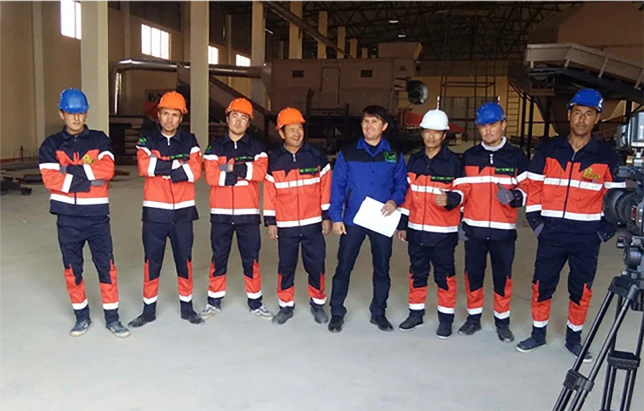

កញ្ញា . 03, 2024 16:36 Back to list
The Importance of Metal Recycling Plants
In an age where environmental sustainability is becoming increasingly critical, metal recycling plants play a pivotal role in promoting resource conservation, reducing pollution, and fostering a circular economy. As urbanization and industrialization continue to escalate around the globe, the demand for metals—ranging from aluminum to copper—has surged significantly. This growing demand, coupled with the finite nature of raw metal resources, highlights the need for efficient metal recycling processes.
Metal recycling plants are facilities specifically designed to reclaim metals from end-of-life products, scrap materials, and industrial by-products. These plants employ various technological processes to separate, purify, and prepare metals for reuse. The efficiency of these processes not only conserves raw materials but also minimizes energy consumption compared to traditional metal extraction methods. For instance, recycling aluminum saves around 95% of the energy required to produce new aluminum from bauxite ore. This energy conservation results in lower greenhouse gas emissions, substantially mitigating the environmental impact of metal production.
The operation of a metal recycling plant typically begins with sorting and collecting scrap metals from diverse sources, including households, construction sites, automotive industries, and electronic waste
. Once collected, the materials are transported to the facility, where they undergo further sorting using magnetic and eddy current separation techniques to ensure that only the desired metals are processed. This meticulous sorting is crucial as it maximizes the recovery rate and ensures high-quality metal output, which is vital for manufacturers.Once the metals are sorted, they are shredded and cleaned to remove impurities. The shredded materials are then melted in large furnaces. For example, in the case of aluminum, the melting point is relatively low, allowing for rapid processing. The molten metal is poured into molds to create ingots, which are then cooled and solidified. These ingots serve as raw materials for various industries, from automotive manufacturing to building construction.

The economic benefits of metal recycling plants are also significant. By recycling metals, businesses can reduce their production costs, as recycled metals are often cheaper than newly mined materials. Furthermore, metal recycling supports job creation in local communities. These plants employ a diverse workforce, ranging from laborers to engineers, contributing to economic vitality.
However, the metal recycling industry faces challenges, including fluctuating market prices for scrap metals and increasing regulations. As nations worldwide focus on enhancing sustainability, regulations regarding emissions and waste management will likely become more stringent, requiring plants to invest in advanced technologies.
Public awareness about the importance of recycling, aided by educational campaigns, can further enhance the efficiency of metal recycling plants. Consumers play a crucial role by ensuring that they properly dispose of metal products and actively participate in recycling programs.
In conclusion, metal recycling plants are a cornerstone of sustainable industrial practices. They not only conserve resources and energy but also contribute positively to the economy and the environment. Investing in and supporting these facilities is essential as we move towards a more sustainable future. As technology advances and public awareness grows, the role of metal recycling plants will undoubtedly become more significant in our quest to reduce waste and promote a thriving circular economy.
Latest news
Troubleshooting Common Eddy Separator Problems
NewsJul.04,2025
The Role of Metal Recycling Plants in Circular Economy
NewsJul.04,2025
The Impact of Recycling Line Pickers on Waste Management Costs
NewsJul.04,2025
Safety Features Every Metal Shredder Should Have
NewsJul.04,2025
How Industrial Shredders Improve Waste Management Systems
NewsJul.04,2025
How Cable Granulators Contribute to Sustainable Recycling
NewsJul.04,2025